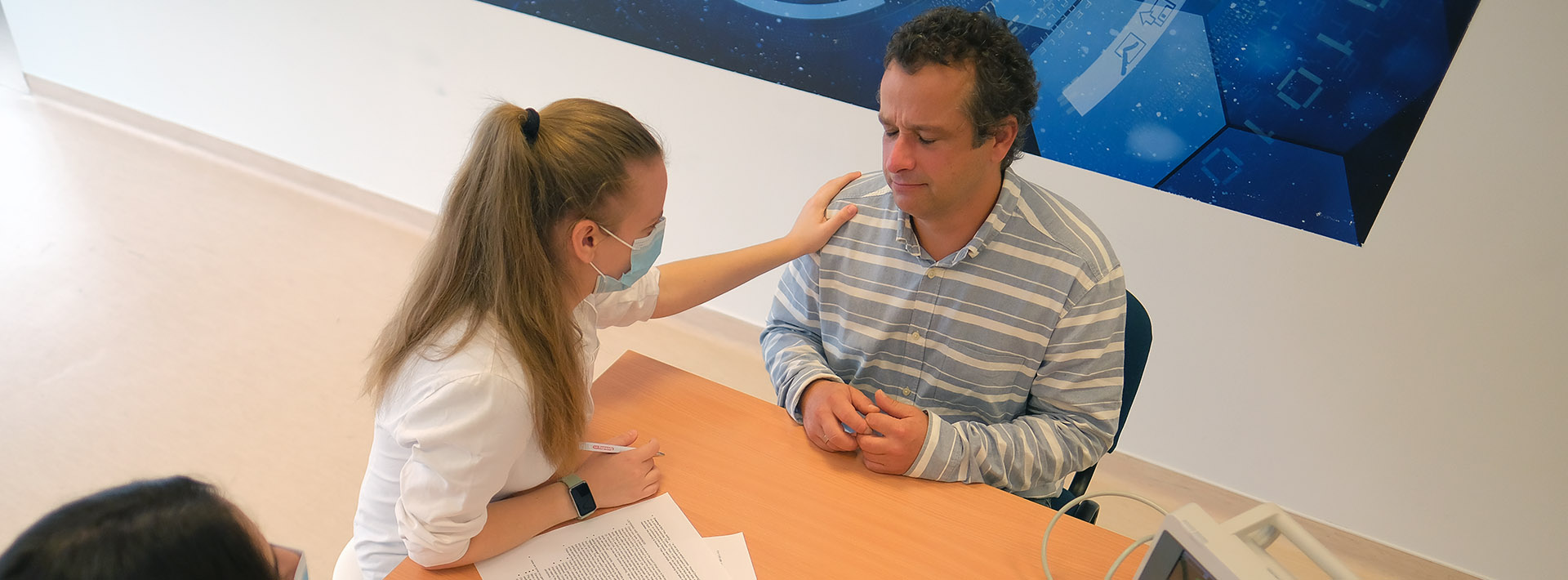Data
Official data in SubjectManager for the following academic year: 2024-2025
Course director
-
Várnai Réka
assistant professor,
Department of Primary Health Care -
Number of hours/semester
lectures: 2 hours
practices: 0 hours
seminars: 10 hours
total of: 12 hours
Subject data
- Code of subject: OAF-HEE-T
- 1 kredit
- General Medicine
- Optional modul
- autumn
OAK-KAR-T finished , OAK-SE1-T finished
Exam course:Course headcount limitations
min. 5 – max. 14
Topic
Family doctors may see patients requiring emergency care at any time during their daily work or primary care visits. As the first observer, the role of the family doctor is crucial in the recognition, care, and possible differential diagnosis of emergency conditions. During the course, students will become familiar with the tools and competencies of the general practitioner in an emergency situation. Through case discussions, students will gain insight into the challenges of primary care emergencies, which include providing health care in atypical settings (e.g., care in the patient's home, public place, car, office); the need to weigh factors of uncertainty (e.g., lack of lab and imaging, telephone consultation); managing the sense of uncertainty caused by independent decision-making; assessing school/social/mental situation and communicating with family members. The case discussion aims to provide medical students with a situation for independent decision-making and to practice taking a stand in that situation. The main strength of the course is the possibility to participate in a situational exercise with a few students. The course can be completed in blocks, the second day will be held in the MediSkillsLab.
Lectures
- 1.
Diagnostic and therapeutical possibilities in the GP practice in the case of emergencies. Duties of the general practitioner in an emergency situation.
- Várnai Réka - 2.
Role of standardized anamnesis and examination. Tasks of the assistant.
- Várnai Réka
Practices
Seminars
- 1.
“Now my stomach is burning” - acute myocardial infarction in the GP practice
- Várnai Réka - 2.
“I can't be pregnant” - differential diagnostics of abdominal pain in general practice
- Várnai Réka - 3.
"Antipyretic and lots of fluids are enough, right?" - leading symptom: fever
- Várnai Réka - 4.
"Grandma has been so restless since yesterday" - confusion and disorientation as a common admission diagnosis
- Várnai Réka - 5.
"I can hardly breathe during the night and my legs are swollen" - heart failure, COPDAE
- Várnai Réka - 6.
"Breathed weird, then stopped taking air" - challenges of cardiopulmonary resuscitation as a GP
- Várnai Réka - 7.
"My husband told me to come in" - thrombosis, embolism, anticoagulation
- Várnai Réka - 8.
"We were afraid he would die at home" - Emergencies in palliative care
- Várnai Réka - 9.
"The cake tasted good" - Treatment of anaphylaxis, allergy in the GP environment
- Várnai Réka - 10.
"I drank what I found in the bottle" - Poisoning
- Várnai Réka
Reading material
Obligatory literature
Literature developed by the Department
Notes
Recommended literature
Donald Briscoe, Bruce S. Britton: Case Files Family Medicine
Conditions for acceptance of the semester
-
Mid-term exams
Successful case resolution
Making up for missed classes
Follow-up work is not possible for absences exceeding 25% of the total number of hours.
Exam topics/questions
-
Examiners
Instructor / tutor of practices and seminars
- Várnai Réka
